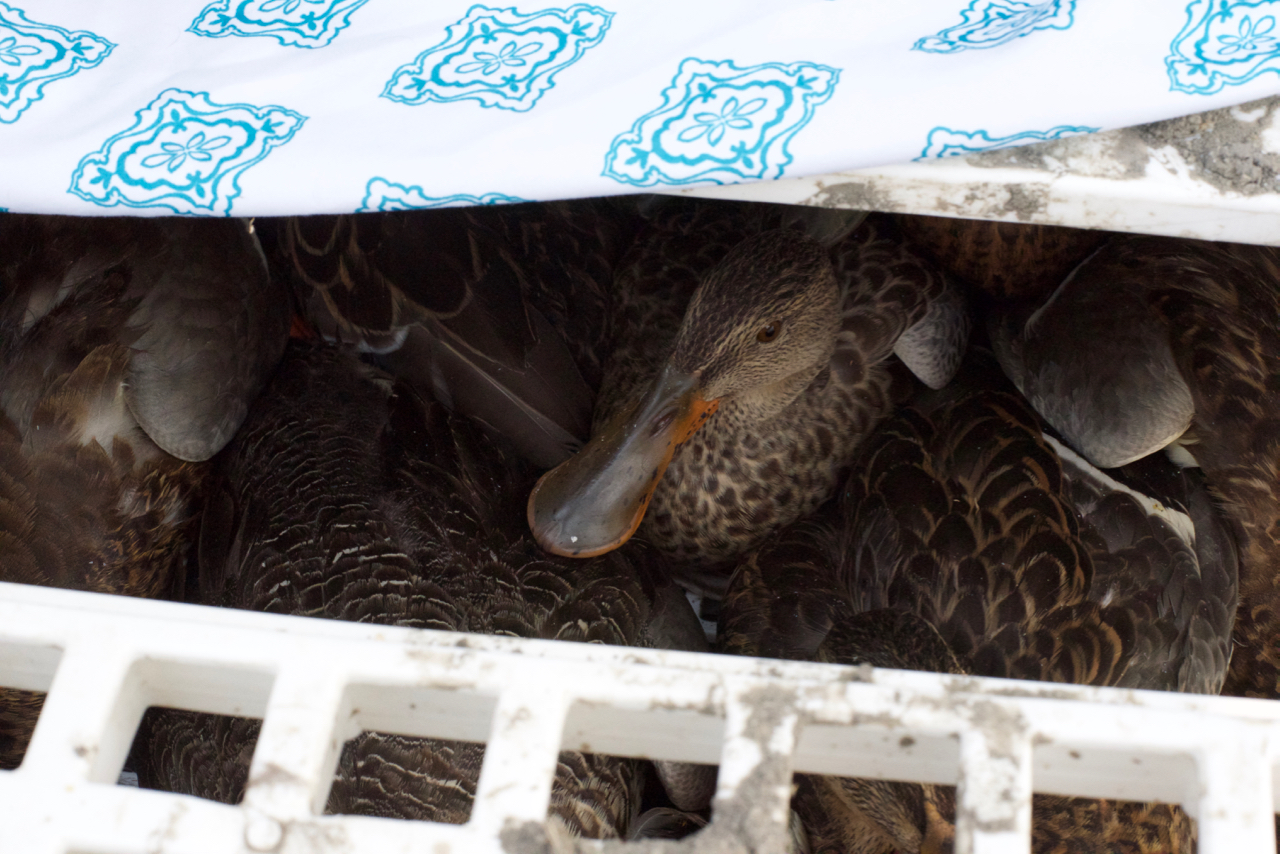
Four wild ducks are being treated for avian botulism infection at the hospital Bird Ally X built on the Tulelake Wildlife Refuge last year.
Two BAX co-directors, January Bill, who lives in the region, and Marie Travers, will be leading the effort. A botulism outbreak on the Klamath Refuge in 2018 resulted in over 400 wild birds, predominantly waterfowl, to be treated for the bacterial infection, and thousands of other birds deaths. (read more about last year’s response.)

January and Marie also led last year’s response, which resulted in hundreds of birds saved from the paralyzing disease, as well as the development of protocols for care which were shared around the western states, where avian botulism is becoming a chronic problem, as well as the entire wildlife rehabilitation community.
Avian botulism is caused by bacteria that is commonly found in fish. During dry hot spells, as water levels drop and water temperatures rise, infected fish who are killed by the environmental conditions are then eaten by piscivorous (fish-eating) waterfowl. Avian botulism is neuro-toxic, causing paralysis and death. Infected dead birds contribute to the virulence of the outbreak, as their carcasses are also eaten by other wildlife. Because water is at the heart of the problem, managing the conditions is fraught with all of the political obstacles that water wars in the West have historically presented.

As the world spins into its unsettling future, with fires raging across the equator and arctic, we know that wildlife tragedies like this will increase, everywhere. We also know that our wild neighbors, innocent of this disaster, will suffer as much or more than the human communities that are also being deeply harmed – including our own, wherever we are.
With your support, BAX will always be here, committed to helping the wild victims of human catastrophe, providing care for those who survive. Your support is what makes our response to botulism in Tulelake, and all our work, possible. We need you now. Thank you!
Click here to help save waterfowl impacted by Avian Botulism


